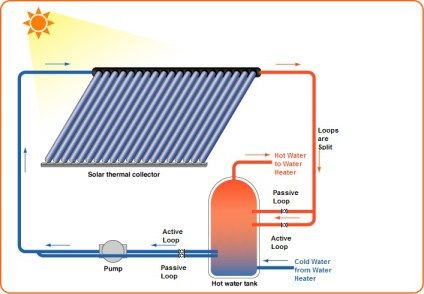Passive solar heating system air panel is powered by the difference in pressures between solar heated air the cooler room air that enters the bottom popular additions because they can be easily retrofitted on the south side of a building.
Passive solar heating systems involve quizlet.
These basic responses to solar heat lead to design.
In addition the heat produced by the sun causes air movement that can be predictable in designed spaces.
The key to designing a passive solar building is.
An active solar heating system passive heat absorption cogeneration.
When sunlight strikes a building the building materials can reflect transmit or absorb the solar radiation.
Passive solar heating is using the sun s rays to heat a living space by exposing the area to sunlight.
System that uses solar collectors to capture energy from the sun and store it as heat for space heating and water heating.
Passive solar design refers to the use of the sun s energy for the heating and cooling of living spaces by exposure to the sun.
Active solar energy systems involve large volumes of massive heat absorbers pumps and moving fluids photovoltaic cells.
Passive system absorbs and stores heat from the sun directly within a structure without the need for pumps or fans to distribute the heat.
What kind of heat pump uses the constant temperature of the earth as a source of heat in winter and as a store for heat in the summer.
Don t incorporate thermal storage in the system is best used in buildings with large daytime.
Typically the aperture s should face within 30 of true south and should not be shaded by other buildings or trees from 9 a m.
In a passive solar heating system the aperture collector is a large glass window area through which sunlight enters the building.
This is called passive solar design because unlike active solar heating systems it does not involve the use of mechanical and electrical devices.
Passive solar buildings take advantage of how the sun moves throughout the day with attention to seasonal changes in sunlight to warm living spaces without requiring any mechanical devices or fuel to do so.
In passive solar building design windows walls and floors are made to collect store reflect and distribute solar energy in the form of heat in the winter and reject solar heat in the summer.




























